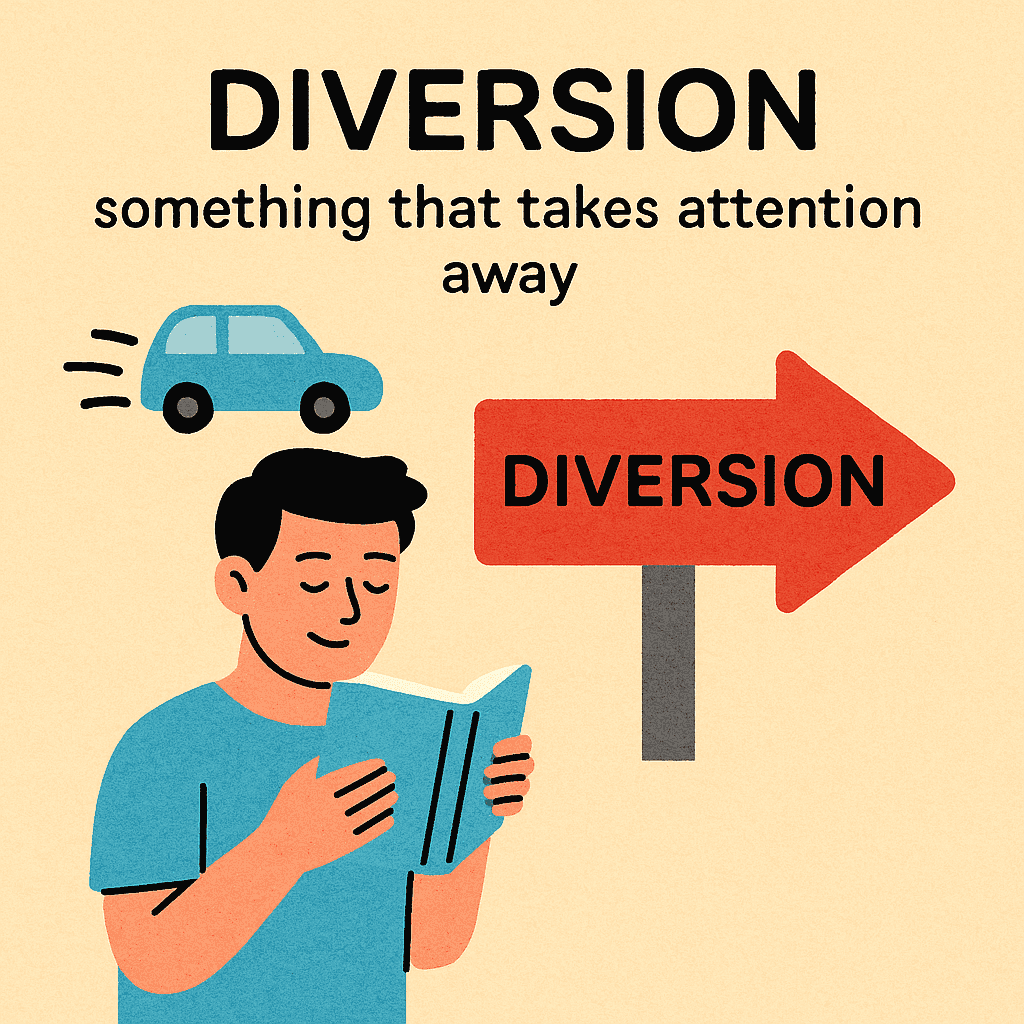Meaning
Diversion means something that takes attention away from what is happening, or an activity that entertains and relaxes you. It can also refer to a change in route or direction (especially in traffic or military contexts).
Grammar and Usage
-
Part of speech: Noun
-
Countable / Uncountable: Usually countable
-
Typical structures:
- a diversion from something — something that distracts or amuses
- traffic diversion — an alternative route due to road closure
- create a diversion — to deliberately distract attention
Common Meanings
-
Distraction or amusement: Something that diverts your mind or attention. Example: Reading novels is a pleasant diversion from work.
-
Alternative route: A different way when the normal path is blocked. Example: The road was closed, so we took a diversion.
-
Tactical distraction: A deliberate action to draw attention away from the main event. Example: The soldiers created a diversion to mislead the enemy.
Common Phrases
- create a diversion – to cause a distraction
- traffic diversion – a route changed due to roadworks
- pleasant diversion – an enjoyable break or pastime
- minor diversion – a small detour or distraction
Collocations
- make / create / cause a diversion
- a welcome / pleasant / brief diversion
- road / traffic diversion
- diversion of funds / attention / resources
Examples
- The magician created a diversion to hide his next trick.
- We had to take a long diversion because of the bridge repair.
- For her, painting is a welcome diversion from daily stress.
- The team staged a diversion to allow their allies to escape.
- A book or movie can be a good diversion during tough times.
- There was a diversion on the highway due to a car accident.
- He used humor as a diversion to ease the tense atmosphere.
- The protesters created a diversion while others entered the building.
Synonyms or Related
- distraction
- pastime
- detour
- entertainment
- deviation
Antonym
- focus
- concentration
- direct route
- main path
